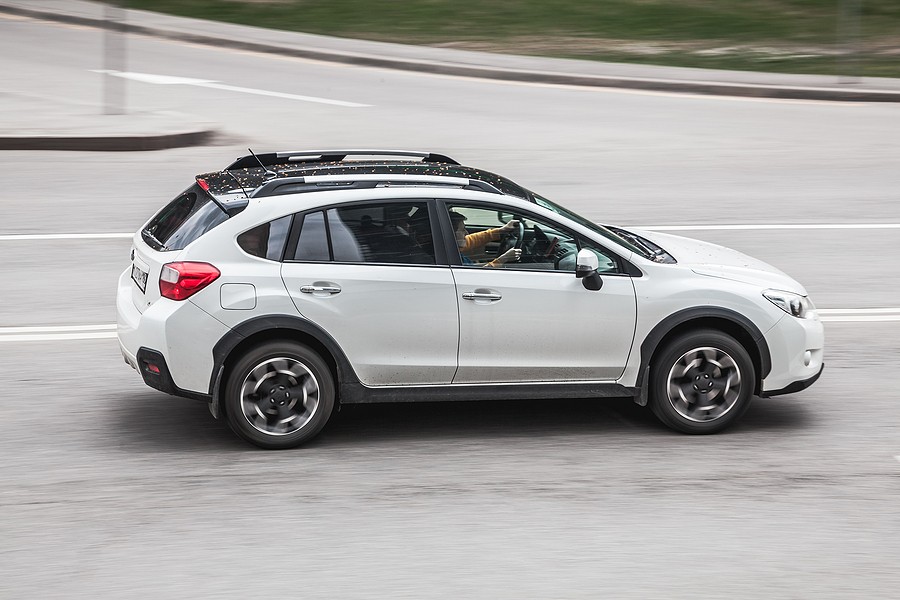Vehicle leases are becoming more popular as people look for ways to get around the restrictions of car manufacturers. As a result, car dealerships see a surge in business as people take advantage of the available deals and incentives.
According to a study conducted by Experian, people are now looking at leasing as a viable option for their commute to work. Leasing also allows drivers the opportunity to get into newer cars than they could normally afford if they were to purchase a vehicle outright.
COVID 19 pandemic and car shortage impacted car leasing significantly. The car shortage has been long-lasting, and car dealerships have difficulty keeping up with the demand.
Leasing a car during the car shortage has its advantages and disadvantages. Let's take a look at how it can affect you financially, as well as your lifestyle choices.

What is the car shortage, and how did it happen?
The 2020 car shortage is a pandemic that has been slowly gaining pace since the summer of 2012. However, it isn't an “outbreak” as such because it hasn't happened all at once, and there are still plenty of cars on the market for those who don't want to lease.
However, it is predicted to escalate until 2020 slowly. At that point, there will be a worldwide shortage of cars, and dealerships will have a hard time keeping up with the demand.
What causes the car shortage?
The best place to start when looking at what causes the 2020 car shortage is its origins: The 2012 COVID pandemic. In July of 2012, twelve people died, and hundreds more were hospitalized with the COVID19 strain of H1N1. As a result, the Centers for Disease Control and Prevention (CDC) issued a warning about the spread of the virus, and as such, people began to stock up on items that would help them survive.
Some people decided to hoard food or medical supplies, while others looked for a secure location to bunker down in. However, they all needed cars in common, as their daily routines would be disrupted, and finding alternate methods of getting around would become difficult.
Emergency services could keep the COVID pandemic under control, but the damage had been done. Without ready access to cars, people were stranded and had no choice but to rely on the goodwill of others for a ride. In addition, car manufacturers saw their sales surge as people needed replacements for those they'd lost during the pandemic.
However, it didn't stop there. As more people switched from owning their cars to using public transport or car-sharing, the demand for new cars went up. Eventually, car manufacturers realized they couldn't meet current demand, and production was slowed down.
People considering trading in their older models began to wait instead, which created a powerful domino effect that led to the 2020 car shortage we have today.

The Car Shortage and Used Cars
Many people who want to get a new car during the 2020 car shortage are holding out for new models, but there's another type of vehicle that might be best for your needs: used cars. Yes, some dealerships may not have any in stock, and they're going to cost more than when they were brand-new. However, if you're looking to save money, then buying a used car is usually the way to go. That doesn't mean you should go into it without thinking things through carefully.
Some car manufacturers are already releasing their latest model years to meet increased demand among buyers who may not get their hands on anything else. This naturally, these will be the most expensive. Still, they're also considered better overall because used models can sometimes fall out of favor far more quickly than you might expect.
Other options are available if the dealership doesn't have any older or previously owned vehicles that meet your needs or budget. You could also consider taking advantage of car-sharing services like Zip Car; if you don't use them often, renting is much cheaper than buying. Whichever path you choose, remember that there are ways around the 2020 car shortage and that car manufacturers know how important it is for people to get around.
You can either opt for leasing during these difficult times or save up money ahead of time, so you'll be in a better position to buy a car at a more stable time. Of course, this means you might not get the car you want right away, but it'll be worth it once everything settles down and there are more options available for people who need them.
How does leasing a car during this time differ from leasing one at any other time?
The biggest difference between leasing a vehicle during an emergency, or any other time for that matter, is that you'll have limited options when it comes to choosing what kind of car you want to use.
Most people will opt to go with the first option they find because it's difficult enough just finding one, to begin with. Breeding out variety makes this process even more complicated so try not to let problems like these get in the way of your final decision-making process.

The Pros and Cons of Leasing a Car During Car Shortage
Leasing a car in the 2020 car shortage has its benefits and drawbacks, but let's look at how it affects you financially.
Pros of Leasing A Car During The Car Shortage
There are two main reasons people choose to lease their cars instead of buying them outright: They want to have a newer car than they could otherwise afford. In addition, the 2020 car shortage means that car dealerships are eager to make deals, and leasing is one of the ways they're able to keep their buyers happy.
They want more flexibility in terms of commuter hours and usage restrictions. Owning your car has its benefits, but not everyone wants to be tied down by strict rules about when you can drive it or whether you can take it out of town on vacation. Leasing allows for more freedom in this area because you don't own the vehicle itself.
Cons of Leasing A Car During The Car Shortage
Leasing isn't right for everyone because some drawbacks need to be considered before leaping.
The monthly payments are higher than for purchasing a car outright. This is because you're paying overtime to eventually own the vehicle, while leasing means you can get your hands on it more quickly and don't need to save up for that final purchase price.
You don't own the car at the end of your lease period, so if you want to keep it, then expect to pay extra fees. There may also be mileage limits in place that will cause extra costs if they're exceeded.
It can be difficult to determine what kind of payment plan makes the most sense. So be prepared and take some time before deciding whether or not leasing is right for you and which dealership deal will produce the best outcome.

Leasing a car during car shortage FAQ
This section covers some of the most frequently asked questions regarding the car shortage and whether or not to lease a car during the pandemic.
Who is most affected by the car shortage, and why are they struggling to find a vehicle to lease or buy?
The people who are most affected by the car shortage are those looking for an older model vehicle when it's more difficult to find one. However, if you're shopping for a brand new luxury sedan, then you'll have no trouble finding it because they're being manufactured in greater numbers.
What kind of alternative transportation options are available during the car shortage?
When the standard mode of transportation is becoming increasingly hard to come by, consider taking advantage of public transit or rental services instead. You may also want to look into car-sharing plans that can save you money if you don't need to use your vehicle every day.
How do rolling blackouts affect the car shortage?
Driving outages during the 2020 car shortage is one of the most disturbing side effects. The rolling blackouts that are currently taking place essentially mean that the electric grid no longer has enough power to keep them running, and they'll gradually shut down until more electricity becomes available. This means if you need your car for business or other reasons during this time, it's best to plan and leave early so you can be sure it won't cut out on you unexpectedly.
How does money affect the car shortage?
Money is a huge factor in any crisis, especially when considering how it affects those who want to buy their vehicle instead of those who prefer leasing instead. If you're looking at purchasing a new vehicle, then it might be difficult to save up the full cost at a time when prices are so high, and sales are in such high demand.
What is the most important consideration during the car shortage?
The single most important thing you can do when dealing with any crisis is collect as much information about it as possible. This gives you a leg-up when dealing with money matters, especially if you want to buy or lease your vehicle at a time when dealerships are eager for new customers. Consider every aspect of leasing, including costs, mileage limits, and restrictions on what kind of commuter hours you can drive, before deciding whether or not this is the right option for you.
How can you lease a car during this time if you're one of the people affected by the shortage?
If this is your first time leasing a car during the 2020 car shortage, it's important to do plenty of research about which dealership deals are available and how they compare. You should also try to get in touch with people who can give you reliable advice on whether or not leasing is the best option for your circumstances.
Do companies allow employees to lease cars during the car shortage?
Companies may offer an allowance that will cover part or all of your costs when you decide to buy or lease one of their vehicles, but this largely depends on where you work and what kind of policy they have in place for these kinds of crises. Talk to them before making any final decisions, so you know exactly what your options are if this turns out to be the best choice for your situation.

Are there any risks associated with leasing a car during this period that consumers should be aware of before deciding?
There are always risks associated with leasing, even when it's easier for people to find vehicles they want to buy. The key is making sure you know exactly what kind of mileage limits and other restrictions there may be before you sign on the dotted line.
Is it possible to continue leasing a car during this time, or will you be required to buy one instead?
If you like the financial benefits of leasing and don't mind driving a car that may not meet your needs in other ways, it's still possible to lease a vehicle even during times when buying might be more appealing to some. However, if you're looking for something that offers better mileage or is more suited to your commute, then buying might be a better option.
How are the car shortage and rising gas prices affecting leasing for this period?
Both of these factors can have a major impact on how appealing it is to lease your vehicle instead of buying one, especially if you want something with good fuel efficiency that doesn't cost a fortune. If you're looking for both low in price and high in mileage, then buying might be the better option during this period, but leasing is still possible if you know your options beforehand.
Are there any hidden costs associated with leasing a car during the car shortage period?
There are always some hidden costs associated with leasing any kind of vehicle, and this is more true when you factor in the cost of fuel during times like therefore, it's important to consider every aspect of your lease agreement, so you know exactly what you're getting into before signing on the dotted line.
Are there benefits associated with leasing a car during the car shortage compared to buying one?
It's possible to enjoy many of the benefits associated with a new car even when leasing a vehicle, especially if it includes a long-term warranty. It's important to remember that this may not be possible for everyone due to financial limitations. However, it can still be an option for some consumers who know exactly what they're getting into before signing a lease agreement.
Are there sales tax savings associated with leasing a car during this period?
Consumers may be able to save on sales tax when leasing a new car instead of buying one, as some states don't assess this fee for leases any longer. However, it's also possible that the rates will go up for those who buy.
Would it be better to buy or lease a car during the 2020 car shortage period?
This depends on your personal needs and what you want from your vehicle. If you're looking for something that offers great mileage and has low fuel costs, then leasing might be the better option, even when the car shortage is making buying a good deal for consumers. However, if you have your heart set on a certain kind of vehicle, then you might want to consider buying instead.
The pros and cons of leasing a car during car shortage: Conclusion
Leasing a car during this period might be a good idea for some consumers, as certain benefits are to be enjoyed. However, it's important to remember that there are also risks associated with this option, so make sure you know what you're getting into before signing any agreements.
Both buying and leasing are options during this period, so it's important to weigh the pros and cons of each before making a decision. For example, if you want something low in price and great on gas mileage, buying might be the better option.
However, if you're looking for something that provides a good warranty and doesn't cost a fortune, then leasing might be the better choice. It's also important to remember that this may not be possible for all consumers but can still be an option for some.



